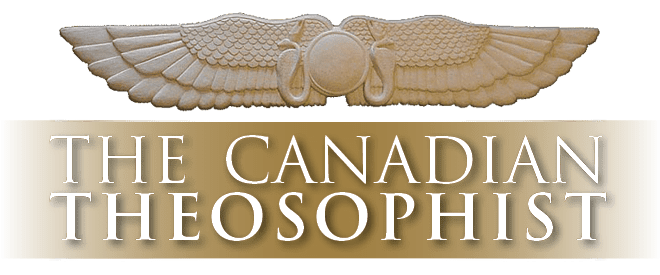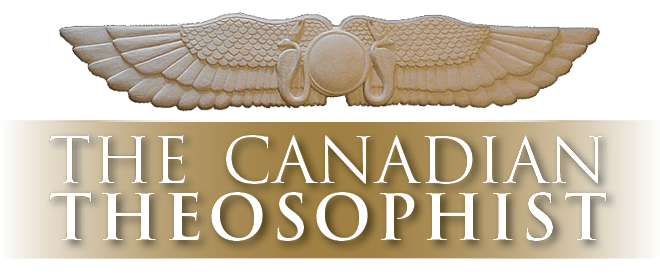Meditation and contemplation are not mental states or things that a person can do when he or she has nothing else to do. The preparation for meditation or contemplation is an intellectual labor. It requires training of the will, and conscious effort to control and direct one’s feelings and affections toward that, which is highest, and best; reasonableness and openness of mind are constant necessities. Only when these disciplines have been accepted and used faithfully do we find in meditation the intuition of spiritual and mystical reality, the replenishing of courage and strength, the deepening of love and compassion, and peace of mind.
Meditation at its deepest and best is a sense of relationship, a feeling of being personally connected with and responsible to a greater power than the self it is the sense of being part of that power, almost included within it, and of helping to carry out its tasks on earth. From meditation we derive strength for service and find the means to do the very best we can. From all this we find reward, comfort, courage, and increased power. Meditation affirms our awareness of possibilities for growth and clarification within our own minds and hearts. It is possible to know ourselves better, to become wiser, more sensitive, more compassionate, we meditate, not that we may receive the bountiful Cosmic supply, but that we may be part of that bountiful Cosmic supply.
We are reminded of our connection with the power and purpose in life, which created us, through which our own lives are dignified and made useful. We act wisely, humbly, intelligently; we live in a mysterious world, vast with untold depths and responsibilities, we find both perspective upon our lives as a whole and resources of courage and vision upon which we can draw in time of needs. As we live we endeavor to find an effective balance between the external demands of work and all our other responsibilities and inner necessities in the creative ordering of our lives. We must relate to our work, the otter world, and the inner activity of meditation, reflection, and contemplation whereby meaning and direction are given to us.
Meditation is man’s quest for deeper understanding of the higher values in his or her life, and for inner strength and vision which will help him or her to become what he or she most deeply wants to be when his or her thinking is clear and his or her intention is pure. Work is the effort to bring this intention about as it actually is with the circumstances as they are and within the limitations and incompleteness of our human nature. A sculptor looks at a piece of stone and there exists in his or her mind some idea of the way in which he or she wishes to fashion this stone so that it will become a thing of meaning and beauty. Imagination is used; this is the artist’s creative ability. Then the Sculptor takes the hammer and chisel in hand, and begins laboriously to chip away, attempting to transfer the idea from his or her mind to the stone. That is the work of the Sculptor. If there were no idea and intention to begin with, the work of his or her hands would be nothing but a busy work, mere activity. His or her labor would be empty and meaningless. If he or she never attempted to transfer the idea and intention from the mind to the stone, that which was visualized, the desire, beautiful as it might be, would be useless.
In all of life, work without meditation and contemplation is futile. Meditations contemplation, and active effort in life go together. Each is important to the other. If the work, which once gave you, joy and a sense of meaning in your life, has now become dull and tedious, it may be that the answer lies in a deepening of the contemplative side of your life. It may be that you should re-examine the quality of your work and the reasons to which it is done.
A sane mystical life requires a constructive balance between meditation and the practical activities of the day, a sense of having a living connection between the two. The results of our meditations contemplations should carry over into our daily activities. This is true not only in the business world, but in our homes and social life. Perhaps our spirituality suffers because of the quality of our performance, a quality which may be mediocre. On the other hand, there should not be an over-emphasis on activity. We should not reach the point where there is a poverty of our contemplative drives. We should take stock of ourselves and know what we are dong. A rational mystic is one who finds the proper balance and relationship between work and profiting from the opportunity to mediate and contemplate. From them there are specific consequences as to what we do. Our efforts are dignified and directed by our contemplation. The mystic and the philosopher make meditation and contemplation a vital part of their daily work. Their work is primarily that of communicating what they know and feel. The meditative and reflective side of their nature is open at all times, and out of it emerges the constructive work and service that they render.
He who enjoys daily periods of meditation and contemplation will be untroubled by doubts and speculative questions about the meaning of life. Contemplation is essentially a process, which takes place when in tranquility we recollect our work and experiences connected with it. We try to see what it means, judge the quality of what we have been doing, and clarify our intentions and resolves as to what we shall do. Then we turn to daily activity with new perspective.
He or she who has found some way in which one can be quiet and alone for a few moments each day has achieved something rather rare in our modern world. The person who has found such a time and place and has begun to use them for reflection has indeed begun to realize benefit from meditation and contemplation. Our ideal values have more reality and power when we are working actively to support and strengthen them. From our hopes, dreams, ideals, goals, and purposes, we try to work out the intricate details whereby something of the gets expressed in the ordinary course of life. We benefit from practical effort, from the inspiration derived from contemplation and meditation. We will come to realize what matters most, what is worthwhile, what we accomplish will be significant and essential.
So let us create the opportunity every day, first for contemplation, and then for meditation, learn to dwell within. Many are the blessings, and benefits, which will be yours as a result of this mystical practice. It will not only give reason and purpose to life, but also help you enjoy higher planes of consciousness and infinite attunement.

